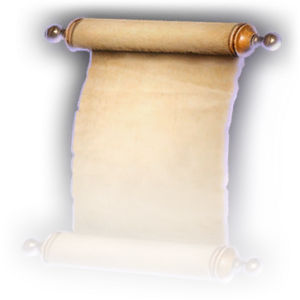Ad placeholder
Balduran Founds a City
Jump to navigation
Jump to search
Balduran Founds a City is a novel about the founder of Baldur's Gate.
This book is redolent with the enticing smell of paper and ink.
Properties
 Notes
Notes Author: unknown
Author: unknown Rarity: Common
Rarity: Common Weight: 0.5 kg / 1 lb
Weight: 0.5 kg / 1 lb Price: 14 gp
Price: 14 gp 
UID
BOOK_GLO_GeneralLoreBook_BalduranFoundsACityUUID
9af236a6-37dd-4a26-82a2-8a5b77878bc2
Where to find
- On a table in the Cloister of Sombre Embrace X: -400 Y: -1676.
- Sold by Nansi Gretta.
- In a bookshelf behind the Printing Press, inside the basement of the Baldur's Mouth Gazette.
- In a Row of Books in the Old Garlow's Basement X: 799 Y: 746
Text
[This text roots its subject on Balduran, a sailor of exquisite renown who founded the city of Baldur's Gate many years ago. The prose is colourful but a little too self-satisfied round the edges, and the novel would be unremarkable but for one small entry about halfway through:]
Balduran claimed a guardian and friend, Ansur. Bright were Ansur's scales, and brighter still his breath!
Yet after a betrayal too piercing to recount here in worthy detail, Ansur fled beneath the stone, thereby changing the name of the region he now slumbers under to match his draconic lineage.
Notes
- The text overall is referred to as "prose," implying that the author's word choices have meaning, but should maybe not be interpreted as precise facts.
- Refers to Balduran as being "a sailor of exquisite renown who founded the city of Baldur's Gate many years ago."
- Refers to Ansur as being a "guardian and friend" of Balduran.
- Provides multiple points of evidence to suggest that Ansur has "scales," possesses "breath" that can be described as "bright," and also has "draconic lineage." This description could technically be fit by Dragonborn and some Sorcerers, in addition to "full" dragons.
- The discussion of a "betrayal too piercing to recount here in worthy detail" could be interpreted in many ways, but the point the text seems to be expressing is that this event caused Ansur to flee "beneath the stone."
- The book item called Dear Ansur seems to specifically relate to the events of the "betrayal" mentioned in this text.
